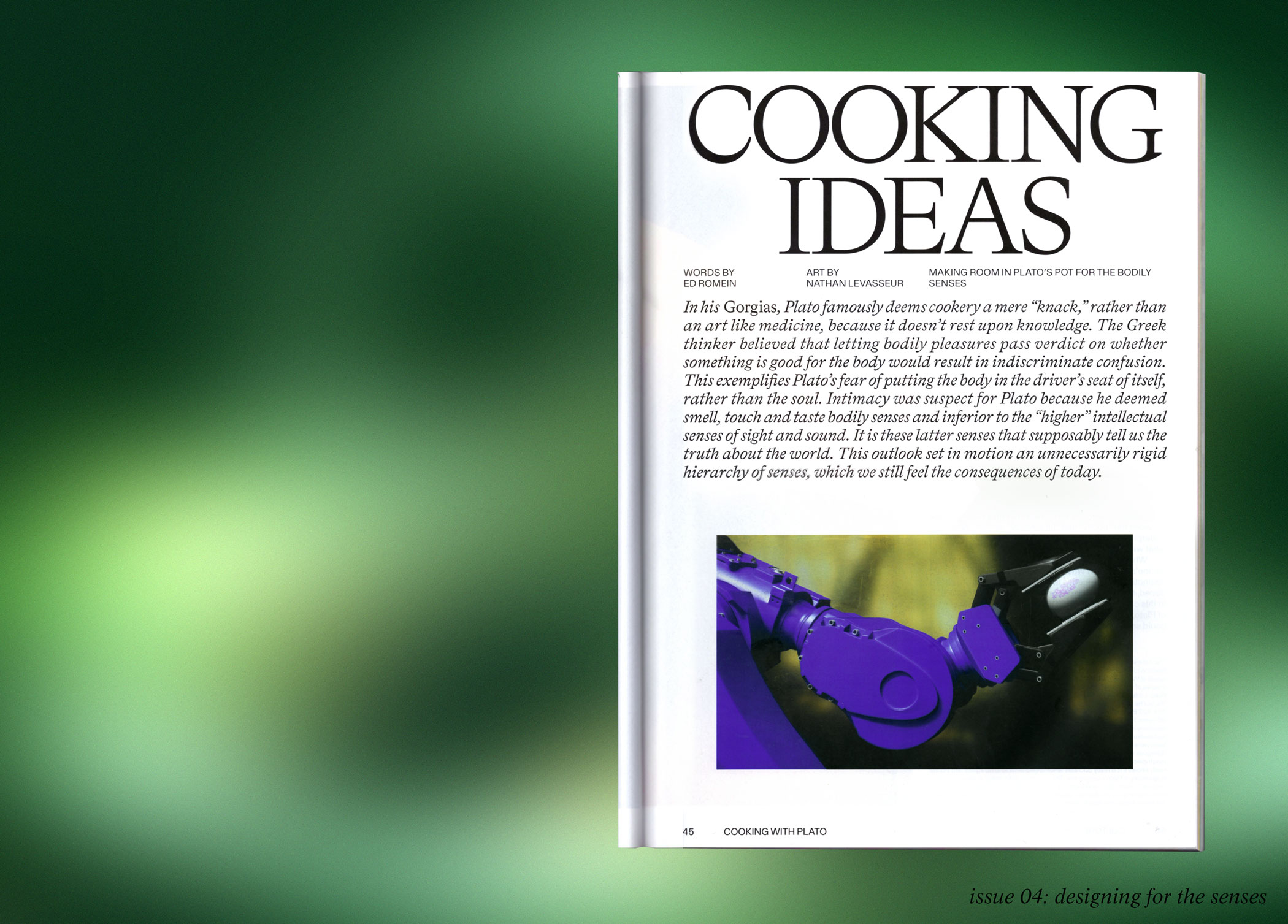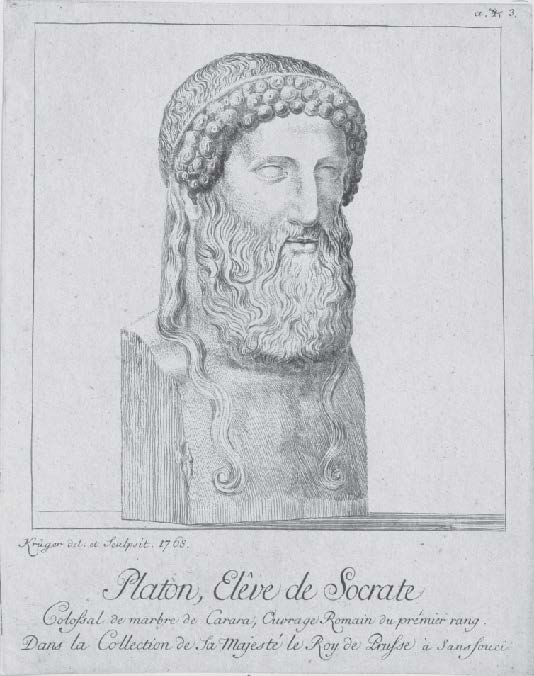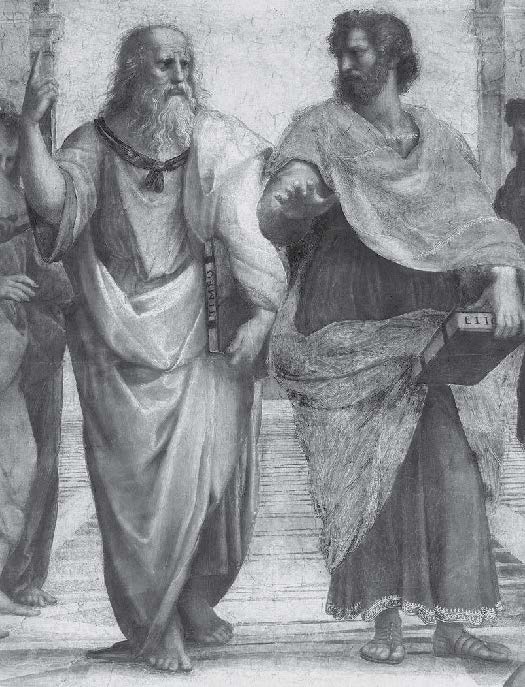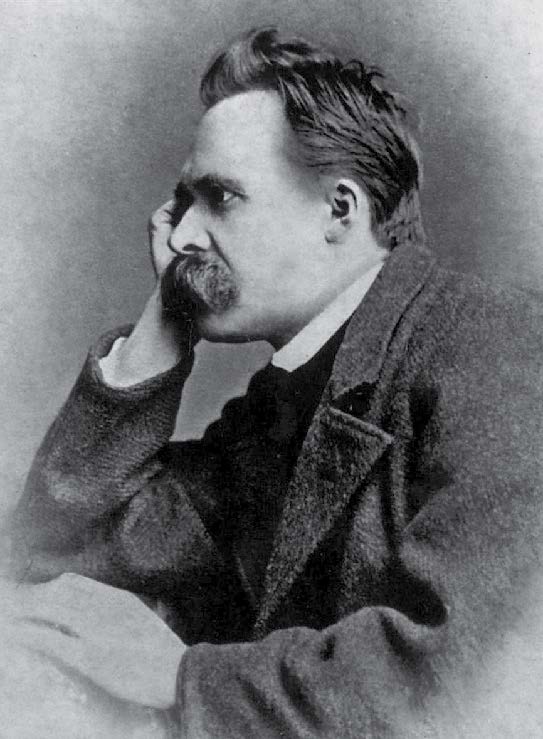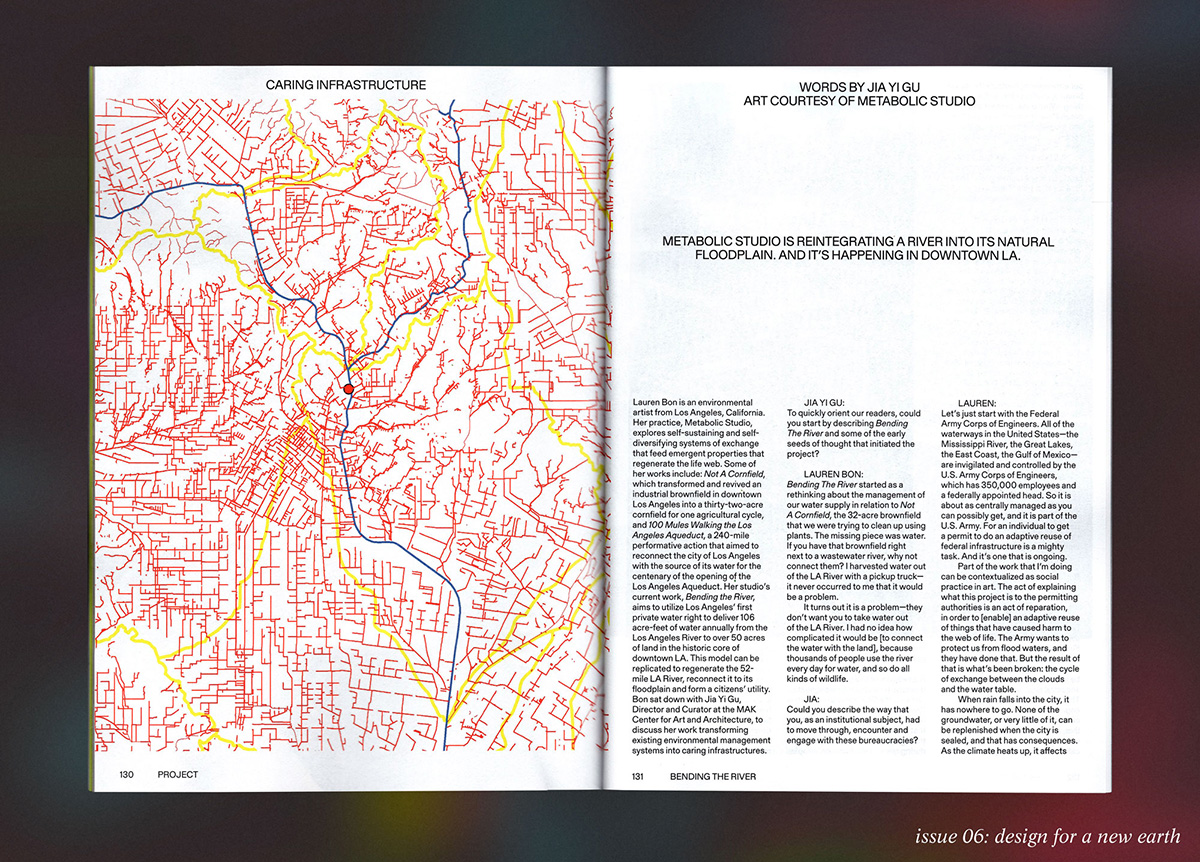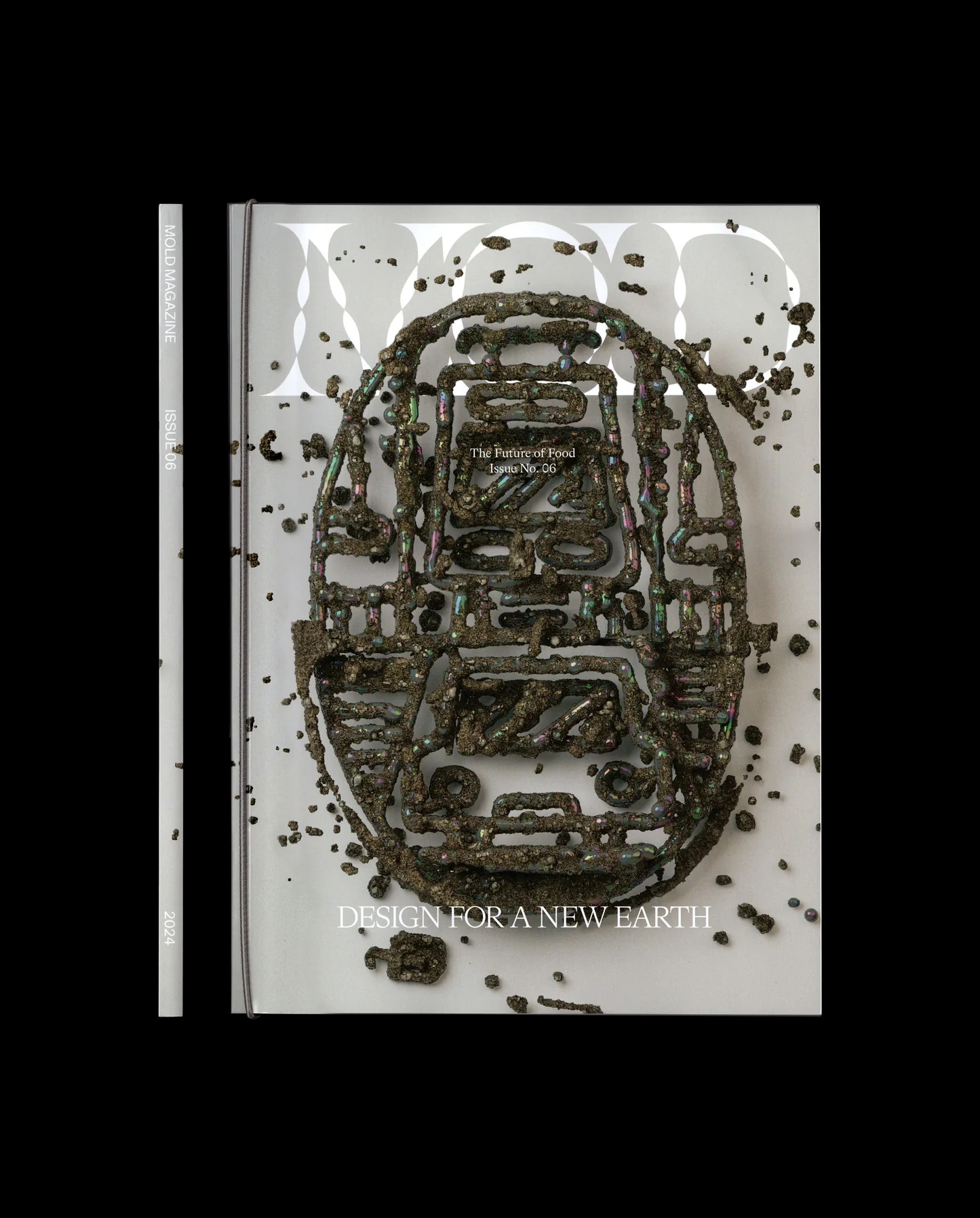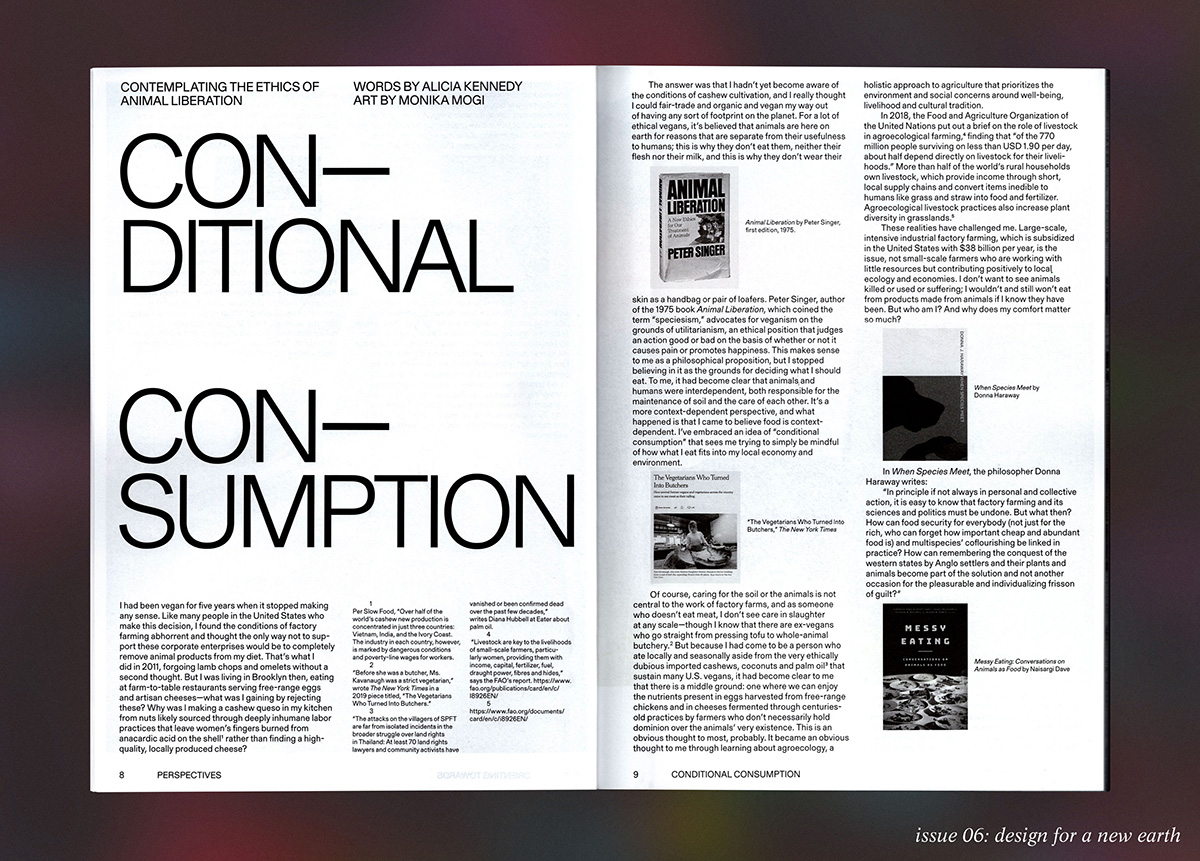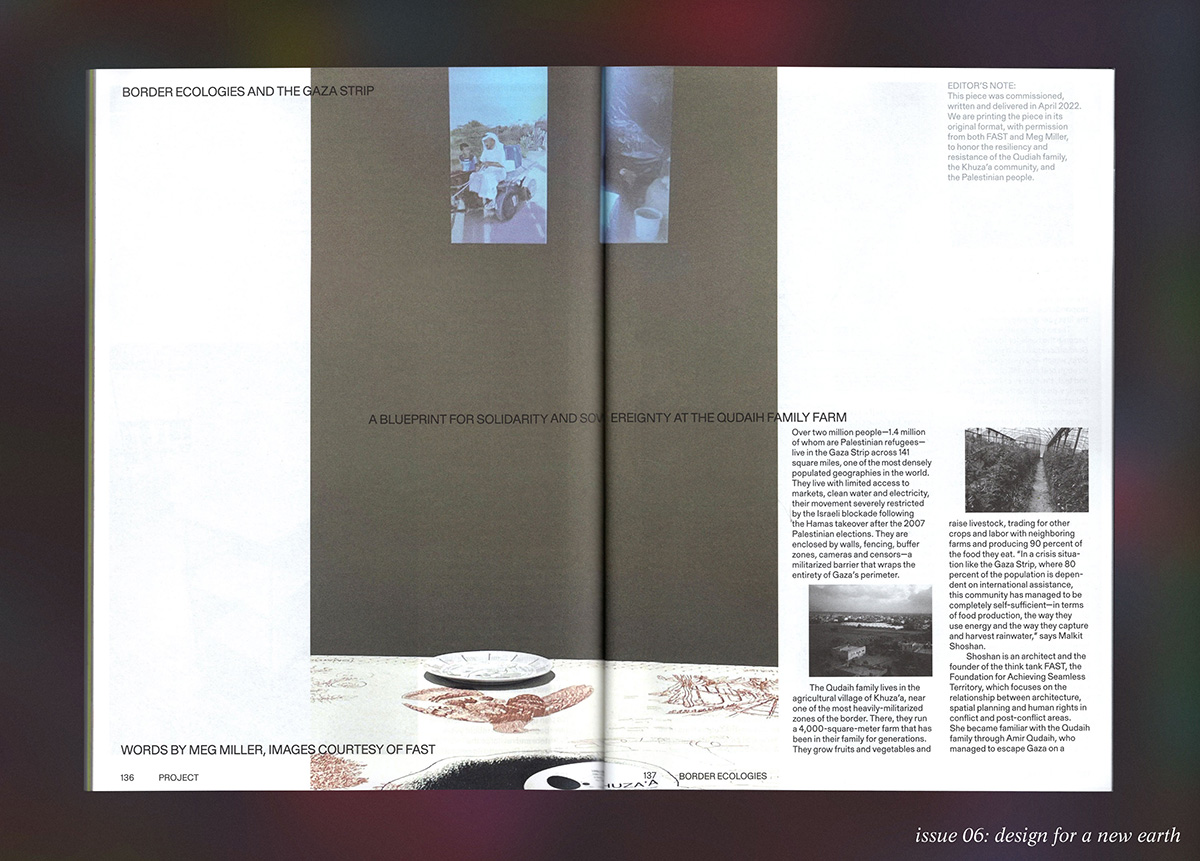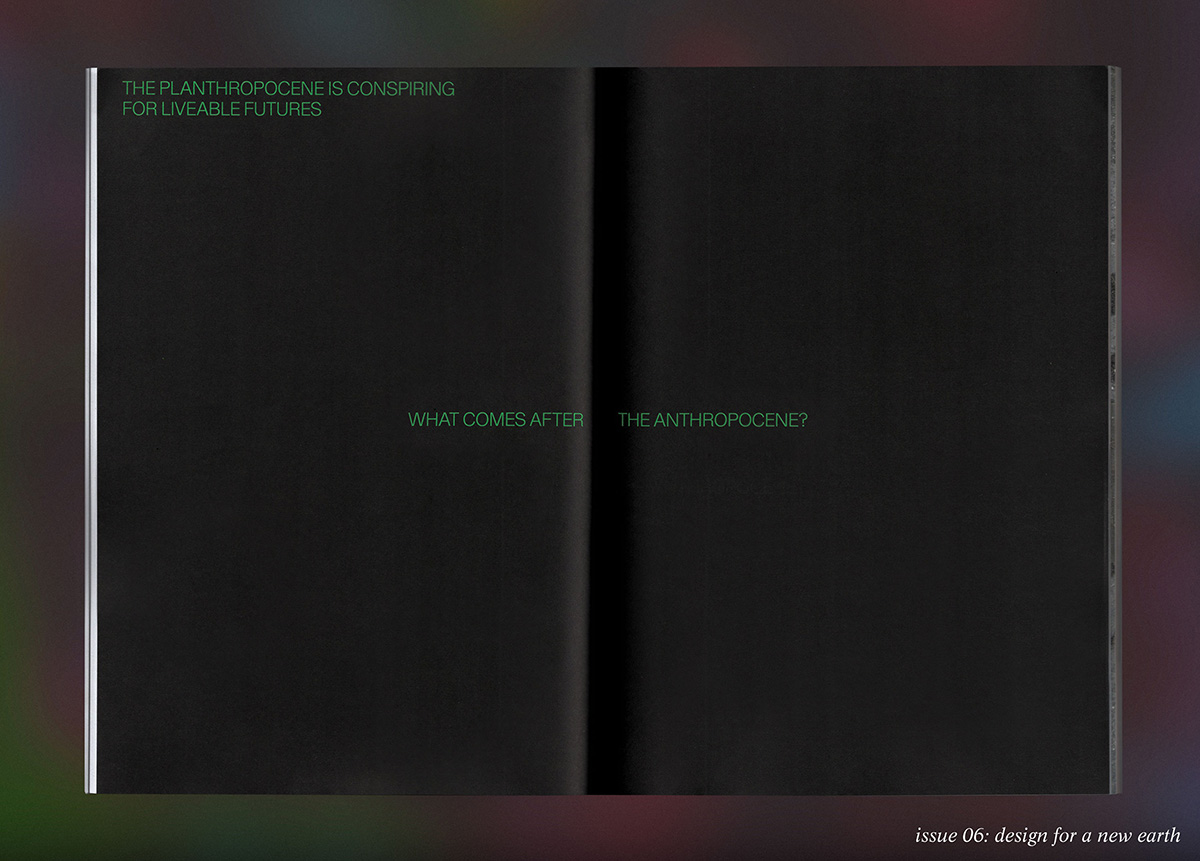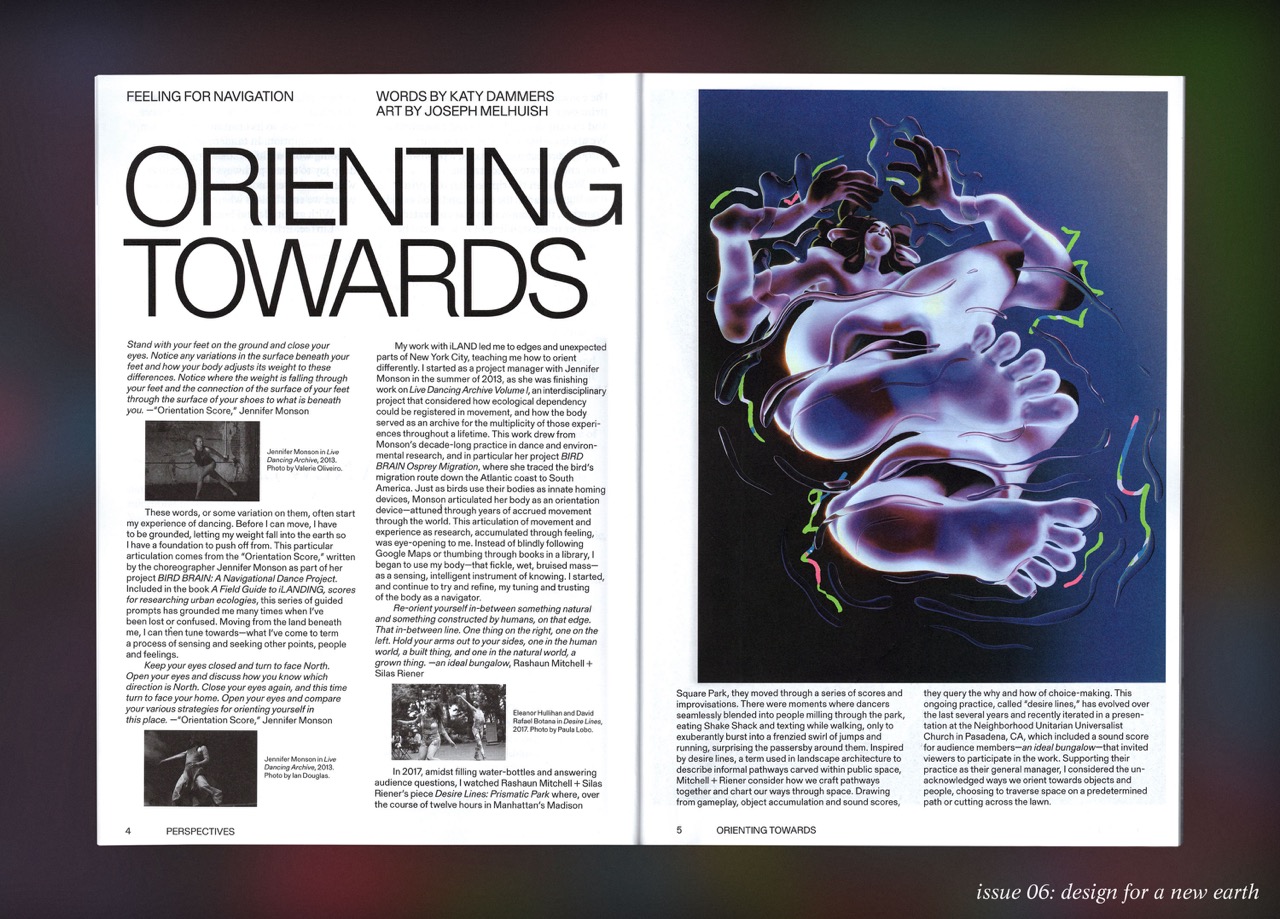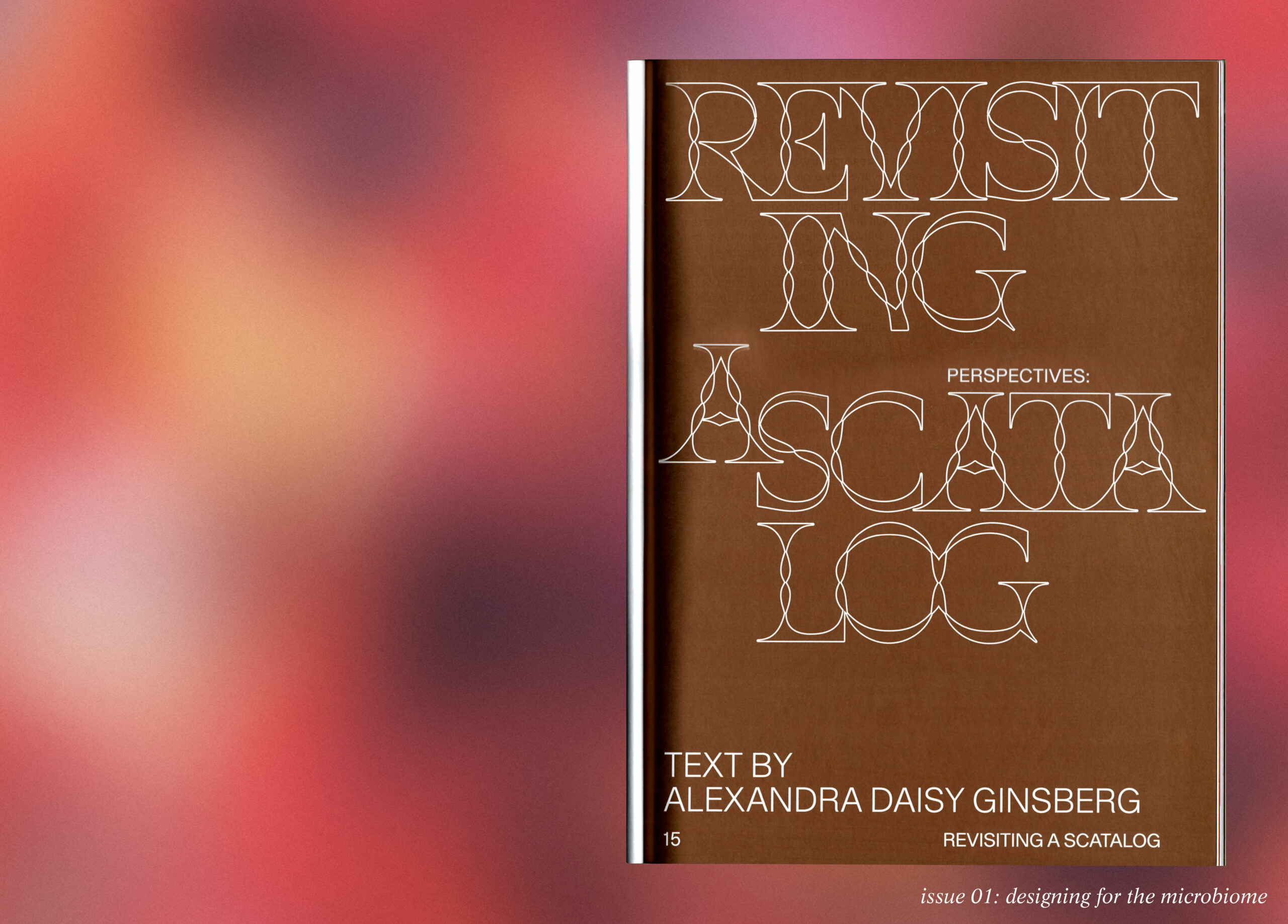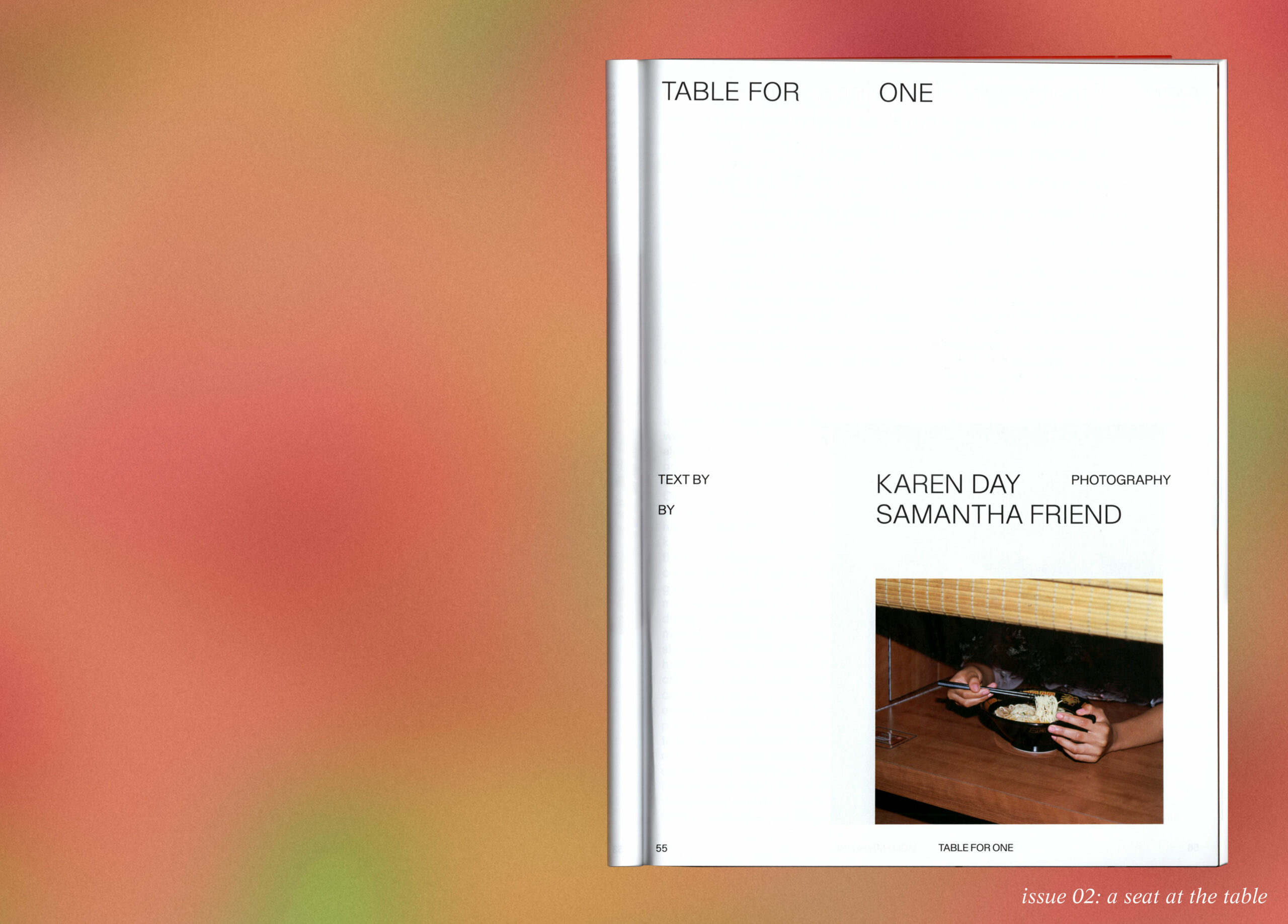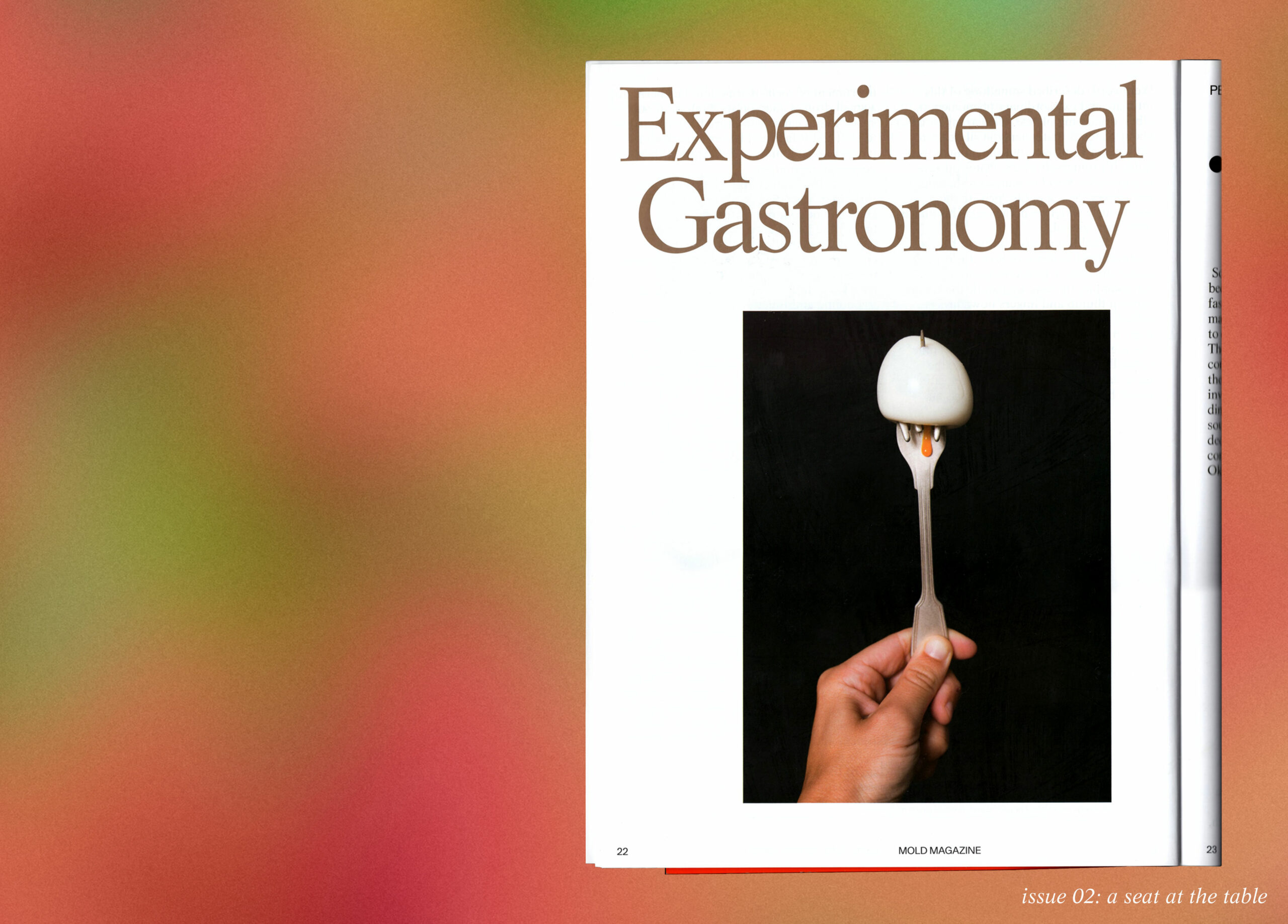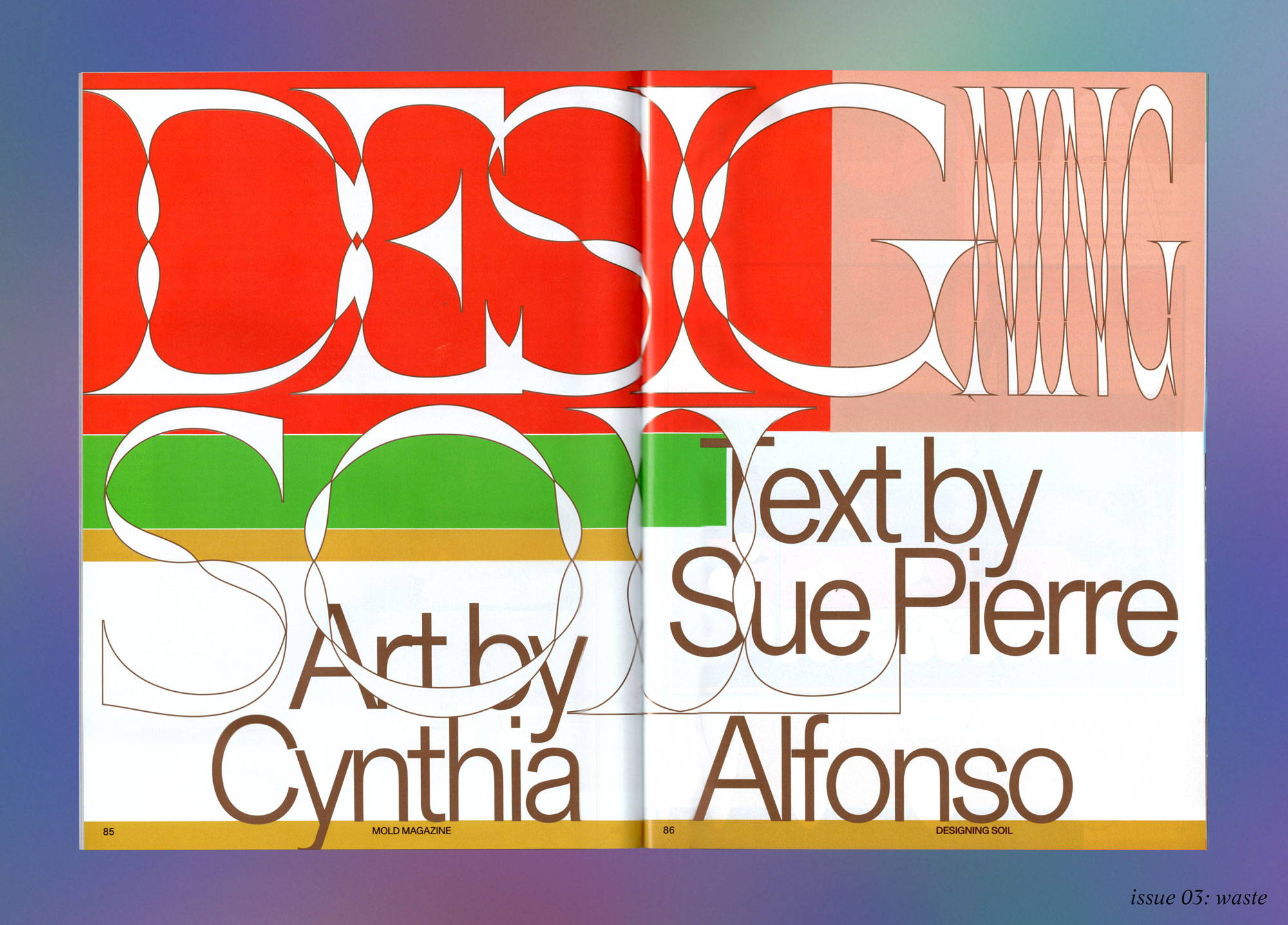From MOLD Magazine: Issue 04, Designing for the Senses. Order your limited edition issue here.
In his Gorgias, Plato famously deems cookery a mere “knack,” rather than an art like medicine, because it doesn’t rest upon knowledge. The Greek thinker believed that letting bodily pleasures pass verdict on whether something is good for the body would result in indiscriminate confusion.
Art by Nathan Levasseur.
This exemplifies Plato’s fear of putting the body in the driver’s seat of itself, rather than the soul. Intimacy was suspect for Plato because he deemed smell, touch and taste bodily senses and inferior to the “higher” intellectual senses of sight and sound. It is these latter senses that supposably tell us the truth about the world. This outlook set in motion an unnecessarily rigid hierarchy of senses, which we still feel the consequences of today.
Of course, it must have been bewildering for the Greeks to fathom how the object of perception reaches the organ of sense, especially when it becomes intimate—of what in the touch of a feather gives a tickling sensation, or how does biting into a lemon give a sour reaction? With smell, one could remove oneself and imagine some imperceptible vapor penetrating the nose, whereas with sight and sound there seems to be no evident direct contact, and everything seems to precede at a (much safer) distance. That distance was believed to be a good thing, and that preconception has remained, more or less, since.
Seeing and hearing seem to be rather harmless and don’t demand a physical intervention. Unlike touching or tasting, nothing happens directly and immediately “in” or “to” one’s body. You can close your eyes and stop seeing, but with touching and tasting, there is an immediate sensation of pleasure or pain. And where there is pleasure, there is the chance of overindulgence, which explains why the Church Fathers of medieval times had no desire to undo the hierarchy of the senses that they inherited from antiquity. But the distance connected to the sense of seeing and hearing was not only preferred from a moral perspective. The biggest impact was on our conception of knowledge, for this distance allowed a crucial reversal. Rather than focus on the perceiving body, it shifted the attention to the source of the perception that lay outside of the body.
And in this reversal, sight and hearing suddenly appeared as untainted sources of insights into a serene, “objective” world out there. Unlike with touch or taste, this allowed for the conception to take hold that one could talk about the same things, abstract from them, and make them into universal truths. You and I can stand and count the sheep in a pen and easily agree on their number, or even their color, shape or size. It is less easy to find common ground on the taste of mutton. The specific insights of touch and taste pertain to a here and now, which is specific and fleeting. Hardly a good basis to found knowledge of the external world on, the ancients must have thought. So, no wonder that they distinguished between the “bodily” and “intellectual” senses. What underpins this distinction and the implications it infers is what will follow next.
Whenever a hierarchy is established, one should be on one’s guard. For where there is a hierarchy, there is a distinction that precedes it. Where distinctions are introduced, the world changes and not always for the good. In this case, the distinction came from the ingenious mind of Plato, the founding father of Western thought.1 You could say that philosophers like Plato are just like any other creative geniuses. They create stuff. Just as you can watch a movie, look at a painting, listen to a composition, or taste a dish, so it is with what a philosopher concocts. They create something you can think with, concepts without which, much wouldn’t make sense. A lot of these concepts are already living inside of you. They get installed in you as a sort of operating system through which you make sense of everything that happens. They are like an umbrella to take refuge under from the infinite bombardment of sensual experiences that life unleashes.
- 1. The American philosopher Alfred North Whitehead once said that the whole of Western philosophy is merely a series of footnotes to the work of Plato. Little is known about his early life, but he was probably born between 428-423 BC and lived for more than 80 years. He was the founder of the Academy in Athens and a follower of his teacher Socrates. His most famous texts were written in the form of dialogues that feature Socrates as a mouthpiece in a way that one never really knows if it is really Socrates who is speaking or Plato’s own words. The survival of most of his works attests to the importance the Western world has persistently attached to them.
The concept that Plato created was the Idea. To him, Ideas are the true things. All we see around us are appearances that reflect another realm where the Ideas reside, like flickering projections on a screen, as if we are watching the back wall of a cave with our back turned to the entrance while the light from the outside carves out shapes of the real things beyond the cave. An Idea is the conception of a thing as it is. Like saying A=A. It can’t be anything else than what it is.2 It is thus perfectly content within itself and as such, something pure, eternal and unchangeable. And since it can’t be something other than itself, it resides in its own world, the world of pure ideas. Plato would, for example, say that only justice is just—it can’t be anything else than that. One can do just acts, but these are cases that share in different degrees a more general principle: the idea of justice.
Plato didn’t just invent this concept out of the blue. If we follow the interpretation of the French philosopher Gilles Deleuze, then we see that this concept was prompted by a burning question in Plato’s time that arose with the birth of democracy: that of distinguishing a true claimant from an impostor.3 With the birth of democracy, a new situation arose in the Greek city where functionaries were no longer appointed by a despot, but citizens could get appointed to offices through allotment based solely on citizenship, and a smaller group could be appointed to higher offices through election. A milieu of rivalry took hold of Greek civilization—from gymnastics to Olympic games to legal procedures. Democracy meant the formation of a society of equals as well as the promotion of relationships of rivalry between and within them, the contests between claimants in every sphere: in love, the games, tribunals, the judiciaries, politics. And even in thought. These transformations posed the question: who is the best and most suited? What Plato sought to do with the invention of the Platonic Idea was to provide a way to select among pretenders.
- 2. In culinary terms, this idea resurfaced in the work of the famous French food critic Curnonsky, with his reappreciation of regional cuisine: “Curnonsky advocated more simplicity and less pompous show in restaurant cooking.” Simplicity also in the proper naming of dishes: “They ask simply that things taste of what they are, that a fricassee is called a fricassee, a matelote a matelote, a roast chicken a roast chicken…” (Curnonsky quoted in Mennell 1985, 277).
- 3. Gilles Deleuze (1925-1995) is most known for this collaborative work with the French psychoanalyst Félix Guattari, which resulted most notably in the works called L’anti Oedipe (1972) and Mille Plateaux (1980). Working from the 1950s onward as a contemporary of Michel Foucault and Jacques Derrida, Deleuze wrote on multiple subjects including literature, film and arts from the conviction that philosophy can’t exist in isolation and is always dependent on other disciplines for the material from which to extract its concepts.
The Idea turned out to be a poisonous gift. For the Idea to be able to point out the rightful claimant, it needs to provide a solid foundation for this judgement. But this solid foundation comes at a price. It namely has to split the world in two, in a here and now and a beyond, and it has to devise a hierarchical order between them. In other words, that which does the judging can’t be of the same nature as that which is being judged. It is the same with a game of football (soccer). It doesn’t work if the referee is a player of the opposing team. Rather, the referee is neither part of the home team nor of the visitor’s side, and the referee transcends both teams in order to have a hierarchical relation of power to them. (Why would it otherwise matter if you got a red card?)
By conceiving the Idea as something that is only itself, Plato thus singlehandedly conceived of a new realm beyond our world that is filled only with pure, eternal and unchangeable Ideas. These Ideas are the benchmark for all claims. And the relation between the Idea and the claim takes shape in the form of participation.4 The first question is, then, for what does it provide a foundation? What, in other words, participates in this Idea? So, what participates in the Idea is first and foremost the Idea itself. Everything else participates only in a secondary sense and in lesser degrees. This is where the split in two worlds takes effect and the possibility to create hierarchies arises. The Idea thus appears as something that can be shared, but never in its pure form, always in a derivative way. It thus introduces transcendence in our world. Suddenly there is a realm that is not part of this world, yet we are related to it, but only in a derivative or even denigrated way. The Idea always possesses the quality first-hand, but for all other claims, it must assess if they possess the quality in next-best or second-degree, or third-degree, fourth, fifth, sixth, seventh—all depending on the nature of their participation with the Idea.
- 4. The Greeks use the word metecheinl, which means “to partake in” or “to share in.”
To divide the senses into a hierarchy of higher intellectual senses and lower bodily senses rests upon Plato’s Idea and its split of the world in two.5 Everything depends on how much one partakes in the Idea while never being able to fully partake. Sight and sound are believed to partake in a much larger degree than touch and taste and thus the former is deemed higher than the latter. And that distinction has spread like a virus and infected our conception of the world. Suddenly those arts and professions that were more engaged with the “intellectual” senses were deemed higher than those which were more concerned with the “bodily” senses. It proved to be a basis for gender inequality as it was believed that only men had access to the higher intellectual senses and thus had the exclusive access to knowledge while women and children were degraded to only possessing the lower senses and consequently being confined to those occupations that involve the body, mainly around the house.
- 5. The German philosopher Friedrich Wilhelm Nietzsche (1844-1900) was a private thinker who resigned his post as one of the youngest professors of philology at the University of Basel due to increasingly debilitating health. Forced by his migraine headaches to write in short and sometimes cryptic aphorisms, he sought alleviation from his condition in the milder climate of the Mediterranean and the Swiss mountains. His greatest contributions are his thorough analysis and criticism of Christianity and the nihilism that pervades Western society. He countered it with a highly original array of philosophical concepts that greatly influenced philosophers from the 1960s onward—most notably, the idea of the eternal return (of the same) and the bermensch. He suffered a mental breakdown in Turin in 1889, leaving him in a stupor for the remaining eleven years of his life.
We are still living through the effects of Plato’s invention and the transcendence he introduced into our world of thought. It was Friedrich Nietzsche, the philosopher with the hammer, that most vehemently started to chisel away the dominance of Plato’s Idea, making a reversal of Platonism possible that restores an inherent conception of Ideas that doesn’t split the world in two. Nietzsche is not alone but stands in a whole line of clandestine thinkers running from the Stoics in antiquity, through to John Duns Scotus in the Middle Ages and Baruch Spinoza in the early modern period, whose work contains a powerful alternative and antidote to Plato’s initial distinction that created a lesser world here and now and a higher realm beyond.
If these thinkers want to topple Plato, it is not to install a new hierarchy, a sort of reversed Platonism, where the bodily senses are on top. Rather, what they ask for is to leave room for experiment and an openness to alternatives—a different way of evaluating that gives room to encounters. It was Spinoza who, for example, noted that we still don’t know what a body can do and all its capacity for evaluating. To Spinoza, evaluating took shape in the form of experimenting with connections. Does entering in new connections increase or decrease my capacity to act? If so, then it is good and joyous; if not, it is bad and saddening. To think through a world of immanence where all senses are evenly important means you are always on the lookout for an encounter, open to connect. The indiscriminate confusion of cooking is not seen as a degenerate state of being but revalued as the possible source of joyous encounters.
